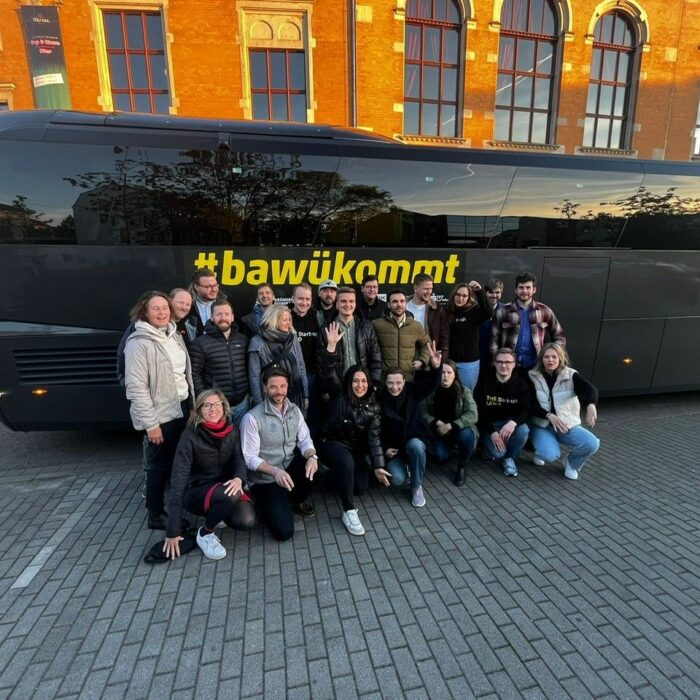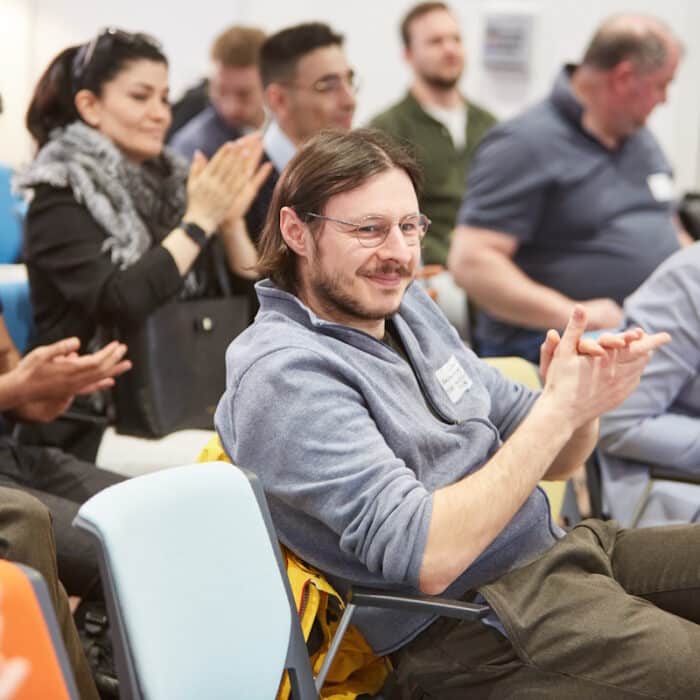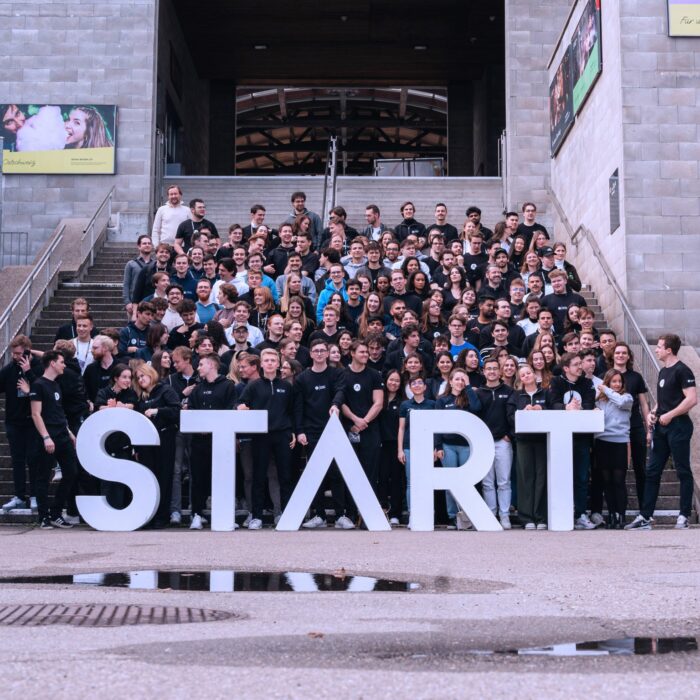Foundation of the month: Revyve Technologies
25.01.2024
Sandra Schöttelndreier
Founder of the month
Enabling climate-neutral mobility on the water is the goal of the KIT spin-off Revyve. The team is developing climate-neutral hydrogen engines for the boat sector, known as Hydrogen Internal Combustion Engines (H2ICE), which burn hydrogen.
What does your company stand for?
Climate-neutral mobility on the water. With the help of hydrogen, we want to decarbonise the boat sector, which has received little attention to date. Modern hydrogen engines (Hydrogen Internal Combustion Engine – H2ICE) are a cost-effective and robust alternative to conventional CO2-free drives such as batteries or fuel cells. That’s why we are working day in, day out to develop our own engines for boats and small ships up to 35 metres in length.
Where and how did you get the brilliant idea to found the company?
We saw the huge potential that hydrogen engines have to decarbonise the mobility sector quickly and cost-effectively. Furthermore, there are significantly more areas of application than those currently being served. While working in research and development at the Institute for Piston Engines (IFKM) under the direction of Professor Koch and later at a company that develops hydrogen engines for buses and lorries, we learned to master the specific properties of hydrogen and use them to our advantage.
How did the founding team come together?
We got to know each other back in 2018 as part of Formula Student. During this intensive phase, we were able to develop a high-performance prototype as a team in a very short time, from conception to realisation on the road. Even when nerves were frayed at times, we always pulled together constructively. This experience is now helping us immensely with our goal of building a successful start-up in the green tech sector. As many start-ups fail because the founders get into each other’s hair under enormous stress, we are convinced that we are somewhat hardened in this respect. Hopefully 🙂

Where do you see the hurdles in the start-up process? Where did you get support?
The step from pre-start-up funding to your own GmbH is an extremely critical moment, as the GmbH must be able to survive stand-alone, i.e. without prior funding. A healthy balance must be struck between cash flow from customers and financial support from investors. Scaling up a startup “on credit” without destroying your own investment distribution for future investment rounds is only possible in very few individual cases and industries. Therefore: Customer is king.
What was one of your biggest challenges during the start-up phase?
Building up the right product portfolio and securing funding for the development of the hydrogen combustion process. To do this, we had to build a structure from scratch that would have to be able to cover various engineering areas (reengineering, design, engine simulation, flow simulation, production, engine test benches, etc.) in the future. Not only for the in-house development of our H2ICE, but also to be able to work on customer projects effectively and efficiently.
Has anything changed for you since the company was formally founded? And if so, what?
With the commitment of a GbR or GmbH, personal responsibility has once again moved to the forefront. However, thanks to our feedback structure and regular team meetings, we manage to make progress in the right places in an organised way. Of course, the GmbH now enables us to get started with the classic company structure, agree LOIs, take on larger customer projects and be investable.
Has Corona had an impact on your start-up/industry so far and if so, what impact?
Due to the hiring freeze and the dissolution of various (pre-)development departments as cost-cutting measures by large companies, it was initially difficult to identify the right contacts. The reorganisation meant that we were unable to use our network as actively as we would have been able to before coronavirus.

Has the energy crisis and/or the war in Ukraine had an impact on your start-up (production, materials, supply chains)?
The resulting supply bottlenecks and price increases for fossil fuels have brought awareness of decentralised supply back to the fore. At the same time, we are noticing that future technologies are now being scrutinised more critically in terms of costs and feasibility. This is of course a great advantage for us, as we use a basic technology that has been mature for over 100 years for our hydrogen engines. These are fuelled with hydrogen, which can be produced practically anywhere, i.e. in a decentralised manner, where the sun shines or the wind blows.
What qualities do you think a founder should have?
The ability to collaborate, self-reflection and a healthy degree of stubbornness to drive your own idea forward. Especially at the beginning, the start-up project is talked about from many different sides. It is important to identify and accept constructive feedback for yourself. Everything else can be safely ignored.
Do you have any practical tips for other young company founders?
Create platforms (e.g. Notion) for a regular exchange (weekly, monthly, semi-annually, annually) between the founders. We start each week with a sprint in which we list all current tasks per person. On Thursday, the sprint is repeated and we check which tasks have not yet been completed. In the middle of the week, we have a team meeting where we discuss what has been going on and what everyone has been doing. It is also very important to talk about the current stress level, emotions and fuck-ups at fixed times. Emotional knots that arise in everyday life need to be resolved regularly so that no ballast builds up and it doesn’t come to a big argument at some point. The latter is a frequent reason for the failure of start-ups.
Listen to the customer: Don’t actively impose your ideas or solutions on the customer, but respond to the problem and offer solutions. The customer is king. At the end of the day, they pay for your company.

Die Gründung des Monats als Podcastfolge
From today’s perspective, what would you perhaps do/approach differently?
We would trust less blindly in big, verbal promises of all kinds. Relying on something that is not written down anywhere, but which significantly influences your progress and the direction of your company, can jeopardise or at least severely delay your start-up project. Furthermore, the first customer contact should be as early as possible. Go to trade fairs, ask what the problems are, what could help, etc.
What are your plans for the future? What are your next big milestones?
Our next big milestone is the completion of our own hydrogen engine prototype. This will form the basis for the series development of similar units and diversify our product portfolio. Follow us on LinkedIn to make sure you don’t miss any updates :).
Thank you for the interview!
START-UP PODCAST
As always, you can also listen to the episode in our start-up podcast on Spotify and get to know the two likeable guys from REVYVE Technologies more personally.



